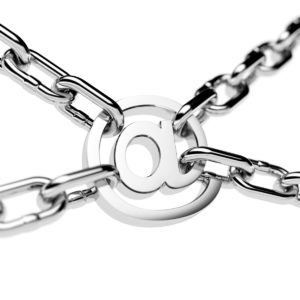Opponents of privacy rules for internet providers the Federal Communications Commission will vote on next week have called for the agency to copy the Federal Trade Commission’s light touch regulatory approach, but recent hacks against the Democratic National Committee, Hillary Clinton’s presidential campaign and Yahoo have some Democrats calling for the opposite.
After the FCC proposed rules earlier this year to mandate internet service providers (ISPs) get subscriber opt-in consent before collecting and monetizing data on their browsing habits, opponents from the tech industry, Congress and regulatory agencies lobbied the regulator to adopt the FTC’s privacy framework, which allows edge providers like Facebook and Google to track all user data, except the most sensitive, unless they opt-out.
Since the recent hacks against the DNC, Democratic Congressional Campaign Committee, the email account of Clinton Campaign Chairman John Podesta, and Yahoo, the comparison has had the unintended consequence of prompting influential Democrats in both chambers of Congress to suggest updating the FTC’s rules to the FCC’s heightened standard.
“The optimal solution would be to adopt strong privacy rules for both ISPs and websites,” New Jersey Rep. Frank Pallone wrote for the Huffington Post in October.
The ranking Democrat on the House Energy and Commerce Committee, charged with overseeing both the FCC and FTC, said the latter agency’s process to update its policy “makes it virtually impossible to adopt similar rules,” and that lawmakers should step in.
“Congress should take this opportunity to fully empower the FTC, and give it the tools it needs to protect consumers from the unscrupulous practices of any company that can collect and monetize their data — whether it is a website or a cable company,” the op-ed reads.
Pallone’s comments echo those by Connecticut Democrat Sen. Richard Blumenthal in September after Yahoo disclosed a year-old hack that compromised personal data, including email login information, for more than 500 million users.
“There are serious questions as to whether Yahoo effectively notified consumers as promptly as they should have been told about those security breaches,” Blumenthal, who sits on the equivalent oversight committee in the Senate, told all three FTC commissioners.
Blumenthal said the FTC should set hard rules for privacy up front, instead of relying on its standard enforcement approach of suing violators after they’re caught.
“The FTC has brought numerous enforcement actions over the years against companies for lax data security practices, but this piecemeal, after-the-fact approach might be better served if the commission were able to prescribe rules requiring security practices,” he added.
On Thursday, Massachusetts Democrat Sen. Ed Markey, who sits alongside Blumenthal on the Senate Commerce, Science and Transportation Committee, likened an internet provider’s ability to track subscriber browsing habits to Russia hacking and stealing the communications of several Democratic party organizations, and said it was up to the federal government to ensure neither Russia nor anyone else can compromise the privacy of U.S. citizens.
“We know that every click an American makes online paints a detailed picture of their personal and professional lives, and an ISP has the ability to see that personal, sensitive information,” Markey told reporters. “Today there are no rules in place that prevent ISPs from collecting and sharing consumers’ information.”
The hacked emails eventually leaked by WikiLeaks exposed primary season favoritism that forced former DNC Chairwoman Debbie Wasserman Schultz to step down as party head on the eve of its presidential nominating convention. Also revealed were numerous private emails between Clinton campaign staffers, including transcripts of paid speeches given to Wall Street firms that the former secretary of state declined to publicly release.
The embarrassing and ongoing disclosures are further fuel for privacy hawks to push for stronger legislative reforms, backed by a party that could find itself occupying the majority of Senate seats in January, riding the coattails of likely president-elect Hillary Clinton.

